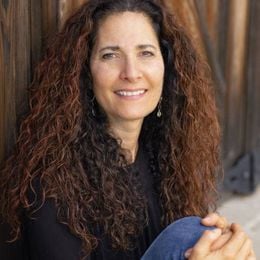Ask Yourself These Six Powerful Questions Today
Life coaches weigh in on questions that can help get to the root of self-understanding
When I was just beginning my life coach training, I had a hard time getting my head around the concept of Powerful Questions. My master's degree was in psychology, and while I wouldn't go so far as to say therapy asks disempowering questions, I will say I was more well-versed in therapy's "what's the problem" line of questioning than I was in life coaching's "what's the solution" line of questioning.

But let's start with a few helpful definitions. What exactly is life coaching, and what exactly are Powerful Questions?
The International Coach Federation (ICF) defines life coaching as a process of "partnering with clients in a thought-provoking and creative process that inspires them to maximize their personal and professional potential." It is the job of the coach to explore and unlock that potential.
One way coaches help clients explore what they want and need is by asking Powerful Questions (PQs). These are open-ended (i.e. not "yes or no"), forward-looking questions, which, when effective, can circumvent a client's evasions, denials and dead-end thinking. A good PQ will evoke thoughtful answers and help clients see possibilities and perspectives they could not see before.
We humans are constantly "explaining" to ourselves why things are happening and what it means, and these narratives become our "stories."
Of course, because life coaching relies on a constellation of skills in addition to the asking of Powerful Questions, they certainly can't do all the work of coaching. But there are some that, even outside the realm of coaching, can show us where we are in our lives, where we want to go and how to begin.
It's not magic; PQs are simply the gateway to deeper self-understanding. For this article, I asked coaches from a variety of backgrounds for their favorite Powerful Question; the first question on the list is my own.
1."What is the story you are currently telling yourself?"
I received my life coaching certification from The Coaches Training Institute (CTI) in 2012, and this question has stuck with me ever since.
What's behind it is the idea that we humans live in two worlds simultaneously: One outside our head, and one inside our head. The world outside our head is objective reality. The one inside our head is everything we tell ourselves — rightly and wrongly — about objective reality.
We humans are constantly "explaining" to ourselves why things are happening and what it means, and these narratives become our "stories." They grow out of our early influences and experiences and are the result of years' worth of messages from our family, friends, teachers and other influential people in our life. We carry these stories, unchanged, into our adult lives, where they continue to "inform" us.
One way to recognize your own "stories" is to pay attention to how often what you believe about one situation is a repeat of what you believed about other situations.
For example, when I receive a writing rejection, my "story" — how I explain the rejection — is that I am simply not smart enough or good enough to do what's required to succeed. Not being smart or good enough was also my story when I was eight and couldn't win a horse show ribbon, and when I was 15 and couldn't win over a boy.
There might be any number of real, objective reasons I got a writing rejection or didn't win a ribbon or a boy, but "I'm not smart enough or good enough" is an old story that grew out of old messages that were never actually true and one that makes me feel terrible every time I tell it to myself.
The next time you are feeling dismal about something, ask yourself, "What's the story I'm currently telling myself?" Sometimes just asking ourselves the question helps us see that our "truth" is not always THE truth. And this alone can shift your perspective.
2. "What terrifies your mind but stirs your soul?"
"The purpose of this question is to get clients thinking about personal fulfillment," said Taryn Watts, a professional certified coach from Ottawa, Canada. "Often, it's hard for us to think about what we really want to do because we are terrified of failing, of looking stupid, or of what sacrifices we might have to make if we actually follow our dreams."
My take: Sometimes it is beneath our terror that our greatest desires lie; giving a voice to BOTH can reassure us that our terror is not being ignored, while clearing a space where we can examine what stirs us. By asking ourselves this question, we invite ourselves to disentangle our fear of the "what-if" from our hopes for deep fulfillment, which allows us a clearer view of where we'd like to go.
3."What would someone who loved themselves do?"
"This question can help guide us towards what we want to do…rather than the dreaded what we should do. From that point of awareness, we can make a more empowered choice," said Karina Farah, of Los Angeles, with Spiritual Therapy Life Coaching.
Often in taking that one small step, we see other small steps we can take which, over time, lead to big results.
My take: This question made me think about how often I operate not out of a place of self-love, but out of a place of 1) what I think others think I should do; 2) what I hope to gain and 3) the avoidance of pain or embarrassment.
During those times when we are seeking clarity or direction, getting in touch with our self-love can help us circumvent entire choruses of negative, disempowering, or confusing voices in our heads, and remind us that we will almost always go further faster when we treat ourselves kindly than when we act out of personal blindness, or worse, self-disparagement.
4."What's missing that, if it were in place, would make the biggest difference?"
Lisa Downs, president of New Aspect Coaching and associate certified coach in Redmond, Wash., finds this question to be helpful to clients looking to take a first step toward achieving their vision, "… especially if they're spinning in "what-if" or stuck in the status quo."
My take: Too often, we feel stuck or stifled by everything we think needs to happen or must be in order before we can finally make that move or decision. This question encourages us to think deeply about what exactly we need, and then to name it. Once the all-important missing piece is identified, we can focus on attaining or achieving it — or we may realize it isn't attainable, which allows us movement in another direction.
5."What is one action you could take today that would move you closer to your goal?
"It does not matter the size of the action," said Annie Provencher, a certified life coach in Hawaii. "The impact is in the fact that it is happening."
My take: This is an excellent question because, when we have a looming goal or deadline, it can feel so overwhelming that we freeze and do nothing for long stretches of time. But if we put our mind to it, we can almost always think of one thing — even if it is something tiny — that we can do to advance us toward meeting our goal.
Doing that one thing is often all it takes to break the spell of inaction and begin moving forward again. This is because action begets action. Often, in taking that one small step, we see other small steps we can take, which, over time, lead to big results.
6."If you had six weeks to live, what on your to-do list would matter to you?"
Julia de'Caneva, a Los Angeles life coach who works with cancer survivors, says of this question, "As a cancer survivor, I deeply value the power mortality has to bring clarity."
De'Caneva says the phrasing of this question is important. "Note that it's not six months or six days. Six weeks allows you time to plan some things, but not so much time you can put things off," she notes.
My take: The regrets of the dying often include areas of their life where they never stopped to question why they were doing something — for example, working too much.
Contemplating having a limited amount of time snaps us out of autopilot and starts to bring our priorities into focus.
This exercise forces people to think about what their real priorities are, what feels most important to act on and which activities and commitments feel least rewarding and can be given up.
As de'Caneva says, "People operate as though they have all the time in the world, but 'later' is never promised."

Read More

